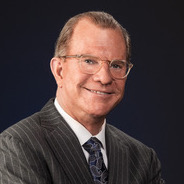6 minutes
Leaders are learners and we need leaders on our boards.
I’m nearing work with board No. 400. Since entering governance consulting and ultimately publishing many articles and a book on governance, I’ve had the privilege to help with board development, strategic planning and board recruitment with boards in the financial services industry, the not-for-profit community domain, large professional associations, and for-profit industry from closely held to publicly traded companies. Two characteristics differentiate the best I’ve seen from the less-than-optimal board: (1) the proper board mix of competencies for their industry and (2) a commitment to get better through investing in board development.
Let’s look at board development as a commitment every board can enhance with tremendous results. No matter the current makeup of your board, learning more about high performance governance can accelerate organizational strength and performance. Here are some ideas I’ve seen that work.
Industry Conferences
Every member gets to an industry conference at least once every two years. Required. Hearing from industry speakers and training resources broadens your peripheral vision about what’s happening in the financial services industry, what other credit unions are doing and how the landscape is changing. While extensive reading may be a substitute for attending a specialty credit union conference, there is no better learning than to hear first-hand from your peers and subject matter experts from across the U.S. and internationally. Data from “The State of CU Governance, 2018” suggests that 62% of CU boards have a continuing education requirement. Do you? Notably, 16% of top-performing CU boards attend conferences outside the CU domain.
Now the rub. Board members who are not retired must take time off to attend a conference. This pressures board members to choose local or regional conferences or to take personal leave to make this commitment. If your credit union wishes to enlarge the opportunity for your board, commit a per diem conference honorarium. Standard practices would suggest $500 per conference day attended. This is a support mechanism that can be used once in any two-year period. Better support for conference attendance will go a long way toward signaling your commitment to board development—and even further in evening out the playing field for board members who are not retired.
Pay Learning Forward
As a member of five boards over my career, I took extensive notes as every conference I attended and shared them with my board peers. Additionally, I created a report on the topics I heard about and what I thought the strategic impact was for our organization, in brief matrix format. These notes were shared with every board member and became an agenda item at a future board meeting. My experience helped pay forward the investment I had made in board development—mostly out of my own pocket. It is impossible to attend a conference and not find at least one thing you might suggest your board follow up on.
Read, Please
I am shocked at how few people at my governance workshops for CUES have never read a book on governance. There are plenty out there, not just mine, and I always recommend a reading list at my workshops. If you have made a promise to your brother and sister CU members to watch over the enterprise, the least you can do is read about how governance can be an asset. Governance has changed a lot and keeping up with high performance practices doesn’t happen without learning about them.
If your board is resistant to reading a book, find a couple of articles a year on governance and make them an agenda discussion item. This is a strategic investment. CUES has ample articles in a variety of lengths, in digital and print format from board members around the U.S., governance experts, and strategic issues futurists. There is no excuse not to read! Find articles on themes you’re discussing—or your governance or executive committees feel you need to update. Make them part of your board development learning agenda.
Coaching
Credit union access to a governance or strategy expert is easy and inexpensive. Many consultants can be accessed online or by phone. A governance consultant does not have to be expensive. If you have sticker shock when reviewing a consulting proposal, that should be a sign that particular consultant may not be for you. Lots of value-priced governance consultants regularly help credit unions and speak at CUES conferences. Seek them out, look at some options and focus their help on your issues. I believe boards will have regular year-round coaches in the near future that will help with assessing learning needs, refreshing governance process, offering advice and facilitating learning through a broad menu of resources.
I also relish my clients who consider the perspectives of a broad array of governance resources from progressive to traditional. It helps them judge how comfortable they are with advanced governance practices or if they prefer a more traditional governance enhancement commitment. Except for a few narrowly focused governance consultants, the credit union domain is well represented with seasoned and experienced experts. Look for those with a track record.
Self-Assessments
The current best practice is that a board conduct a self-assessment every year. From that assessment, directors can set a goal or goals for development. This assures the development investment is needs-based across the entire board and not just a chair’s imagination.
About every four years a broad-spectrum board assessment such as the CUES assessment tool is recommended. Or, if your board has not done a self-assessment in a while, a board spectrum assessment is recommended. The between-years assessments can help boards focus on a narrower assessment on governance themes such as the strategic planning process, meeting and agenda effectiveness, risk management investment, board development, recruiting new board members, CEO evaluation, etc. A highly mature board may even conduct individual evaluations where every board member provides every other board member anonymous feedback on how they can contribute even greater value to the board. That’s the question. Only one: “What can ______ do to add even greater value to our board processes?” Individual assessments are gaining traction, however, if you’re board has issues—interpersonal or other—it’s most likely better to skip this type of individual feedback so as not to start a food fight.
An analysis of whole board assessments should result in the board setting some “learning” goals for the next year. For about half the boards with whom I consult “governance enhancement” is a strategic objective. That speaks to how quickly the governance practices landscape is changing and where credit union boards see themselves.
Nothing Beats Individual Commitment
Board members who regularly read the governance literature and enhance their own literacy about governance is a dream board member. Adults are learning machines and—unless complacency has taken over your board—individual board members should not be waiting around to be encouraged to learn. Leaders are learners and we need leaders on our boards. Ask yourself this question: What governance issue has a board member brought to the board after doing reading and research on governance? If the answer is none, you have a complacent board.
Our Promise
Credit union members count on board members to be the best board member they can possibly be. When you accept a board seat you have made a promise to the membership that not only will you watch the performance of the CU closely but you will also learn to be the best board member possible. The old days of a smart person getting on a board and simply using their own intellectual compass are over. While we may be smart, we may not be smart at high performance governance unless we learn about. How will you help your board make a deep learning commitment around governance?
Regular CUES columnist and seminar leader Les Wallace, Ph.D., is president of Signature Resources and author of Principles of 21st Century Governance. He is a governance consultant to boards in the credit union, community banking, healthcare, professional association, manufacturing and governmental arenas.






